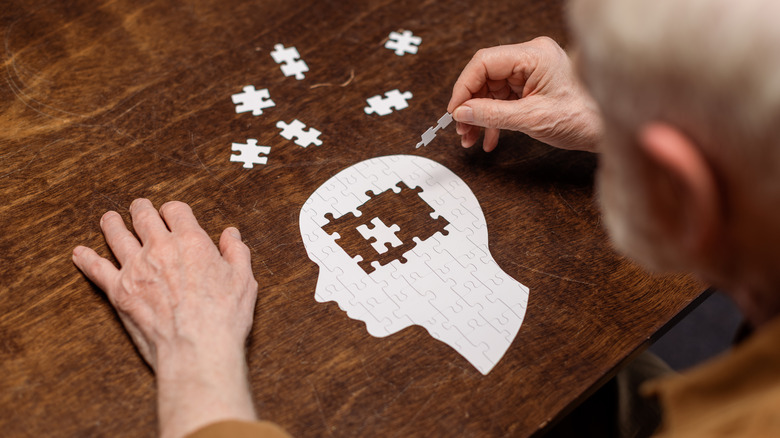It Could Be A Warning Sign Of Dementia If You Start Taking Longer Naps
Few things are more satisfying than taking a power nap when an afternoon slump kicks in. This simple habit can boost your energy, making it easier to focus later. In the long run, napping may improve your memory, facilitate learning, and improve alertness, according to a 2019 study published in the journal Sleep. Furthermore, napping for six minutes to two hours can enhance memory retention and reduce forgetfulness. Daytime naps may even improve creativity and cognition in healthy adults, suggests a 2021 review featured in the International Journal of Environmental Research and Public Health.
Surprisingly, the duration of a nap has different effects on us depending on our age. For example, a 2014 research paper found that students who took a two-hour nap daily for five days got higher test scores than those who attended classes instead of napping (via Frontiers in Systems Neuroscience). Other studies indicate a potential link between long naps and mortality rates among older adults, according to 2006 evidence published in the journal Current Opinion in Pulmonary Medicine. Scientists say that napping for 30 minutes or less can improve mental performance, making it easier to learn new things. Longer naps, on the other hand, can affect productivity and increase sleepiness.
More recent evidence suggests that taking longer naps could be a sign of dementia. Let's see what the research says.
Longer naps may be an early sign of mental decline
We know that we can benefit from short naps. However, if your naps are getting longer for no obvious reason, you may want to consult a doctor. Researchers have found a positive association between long naps and mental decline, reports a 2022 review featured in the journal Alzheimer's and Dementia. Nap duration tends to increase with age, but Alzheimer's disease can further increase the need for longer naps. And the reverse is true. Over time, excessive napping can affect cognitive performance, leading to a higher risk of Alzheimer's disease. "Sleep changes are critical in shaping the internal changes in the brain related to the circadian clocks, cognitive decline, and the risk of dementia," explained Kun Hu, one of the study's authors, in an interview with The Harvard Gazette.
Another study, which appeared in the Journal of Sleep Research in 2015, found that excessive daytime napping may worsen depression symptoms and affect cognition in seniors prone to dementia. Moreover, this habit may contribute to heart disease in older adults, notes a 2012 study featured in the journal Sleep. Scientists say that napping for longer than 60 minutes can increase the risk of sudden cardiac death and other cardiovascular events.
To stay on the safe side, consult a healthcare provider if you notice any changes in your napping routine. While there is no cure for Alzheimer's, early diagnosis can make it easier to manage its symptoms and slow down mental decline.


